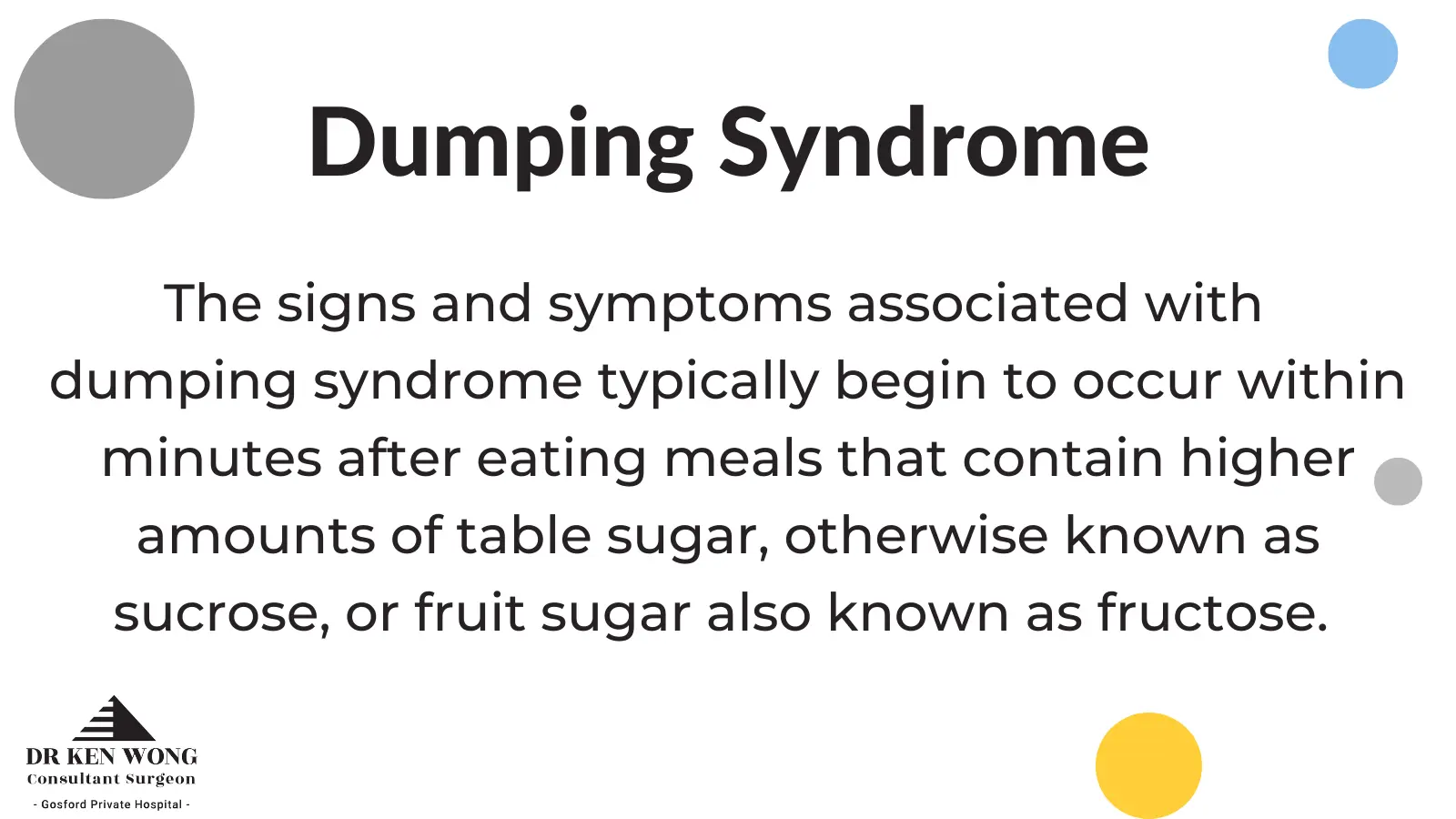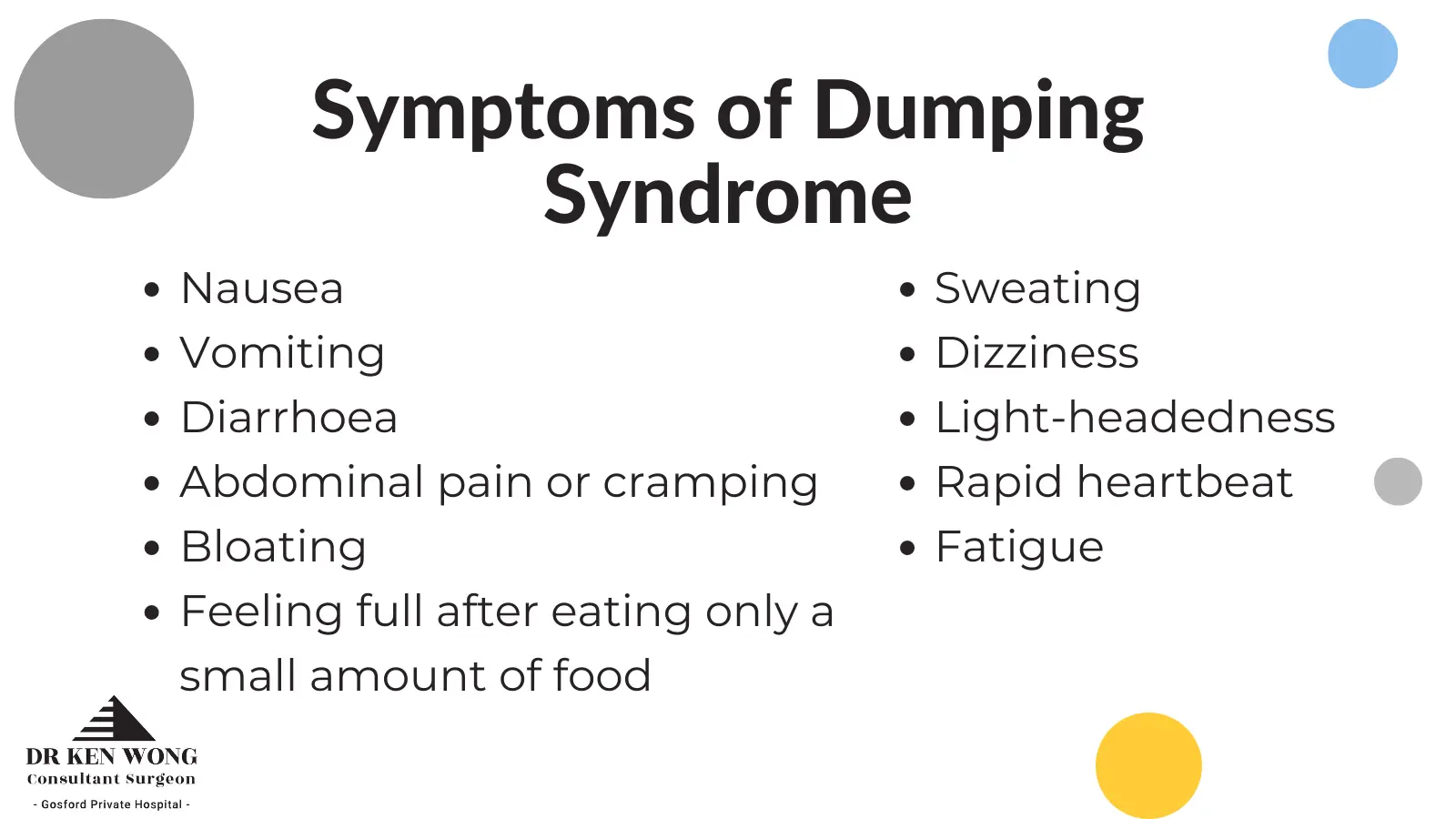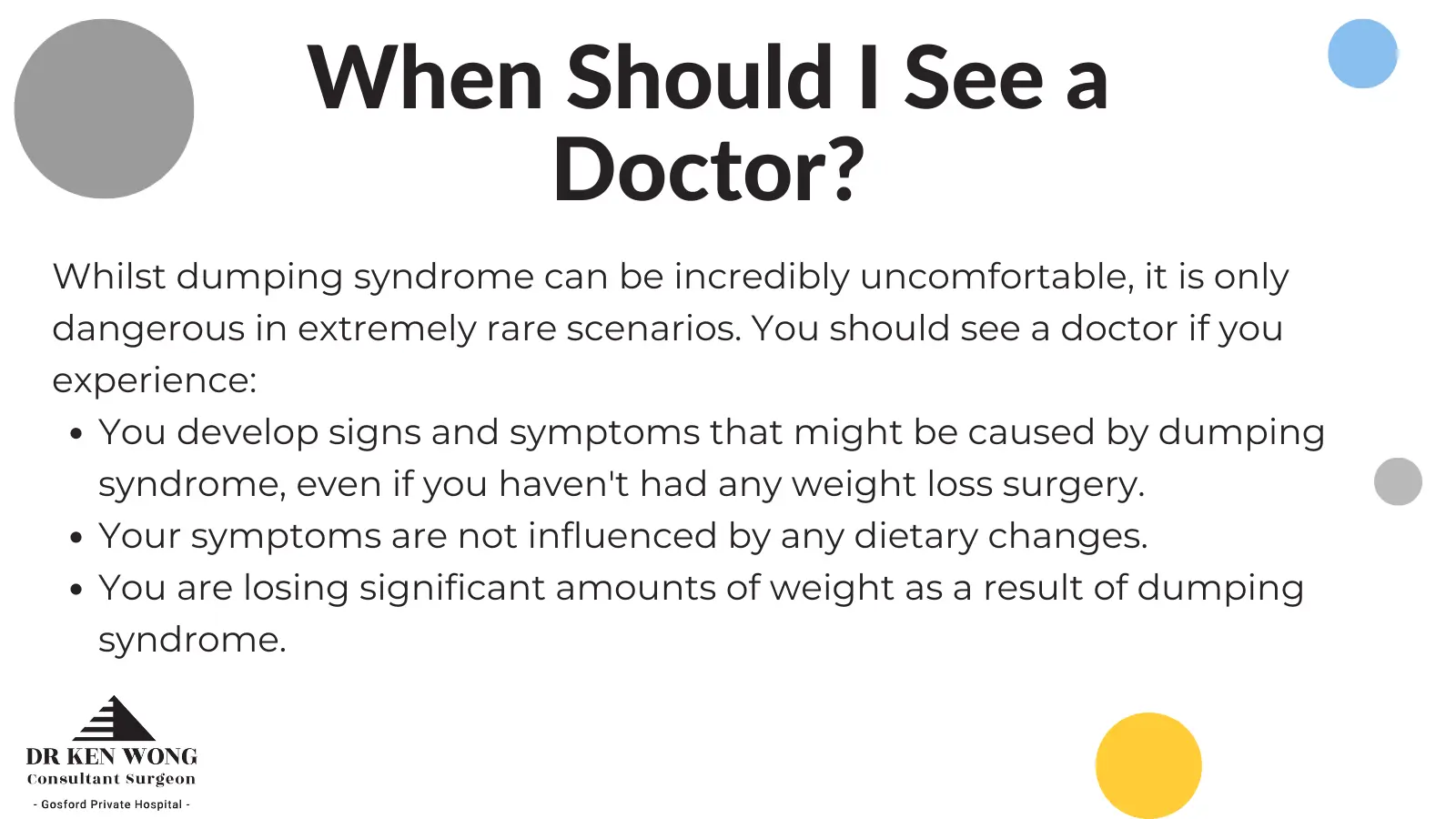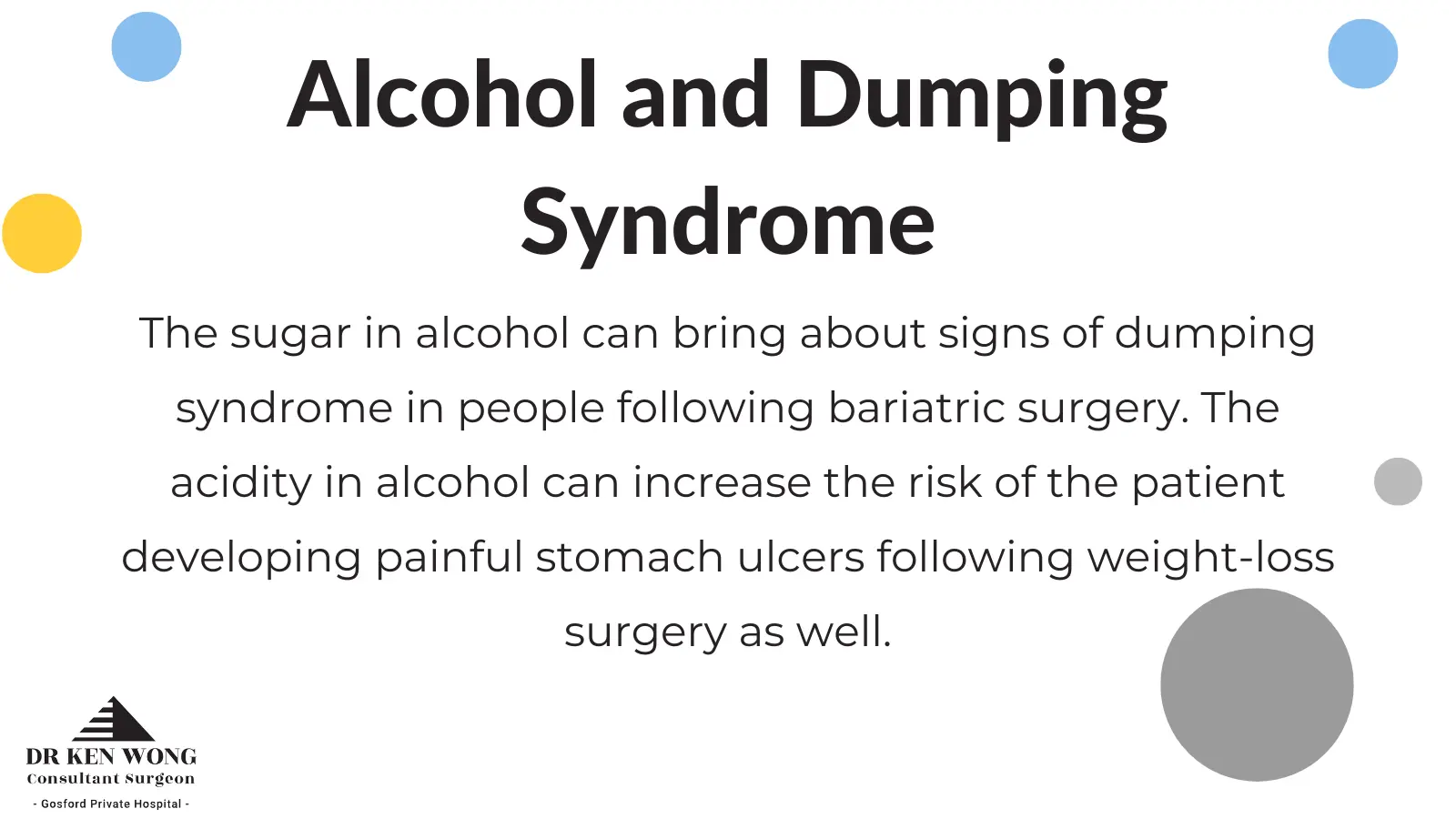Dumping syndrome after gastric sleeve is a condition that can occur after surgery to remove a large portion of the stomach. It happens when food moves too quickly from the stomach into the small intestine. Dumping after gastric sleeve can cause symptoms like nausea, vomiting, diarrhea, and abdominal pain.
Dumping syndrome is more common after gastric sleeve surgery than other types of weight loss surgery. But it can also happen after other surgeries, like gastric bypass or duodenal switch.
This article will look at the symptoms, causes, treatment, and prevention methods that are available to gastric sleeve patients to minimise the risk post-surgery.
What Is Dumping Syndrome?
Dumping syndrome after gastric sleeve surgery is a condition that can occur when food moves too quickly from the stomach into the small intestine. This can happen because the stomach empties more quickly after surgery, or because the small intestine cannot absorb food properly.
When food moves too quickly through the digestive system, it can cause symptoms like nausea, vomiting, diarrhea, and abdominal pain.
Dumping syndrome is more common after gastric sleeve surgery than other types of weight loss surgery. But it can also occur after other surgeries, like gastric bypass or duodenal switch.

Types of Dumping Syndrome
There are two types of dumping syndrome: early and late.
- Early dumping happens 30 to 60 minutes after eating.
- Late dumping happens 1 to 3 hours after eating.
Both types can cause similar symptoms, but early dumping is more likely to cause low blood sugar levels (hypoglycaemia).
Dumping syndrome after gastric sleeve is treatable. Changing your diet and eating smaller meals more often can help. You may also need to take medication to control your symptoms. If you have dumping syndrome, it’s important to follow your doctor’s instructions and attend all of your follow-up appointments. With treatment, most people are able to manage their symptoms and live a healthy life.
What Are The Symptoms of Dumping Syndrome?
The symptoms of dumping syndrome after gastric sleeve can vary from person to person. They may be mild or severe, and they may come and go.

These symptoms can occur after eating any type of food, but they are more likely to happen after eating high-sugar foods like candy, cake, cookies, or fruit juice. Typically, symptoms will last for anywhere between 30 to 60 minutes, but they can last for several hours. In some cases, symptoms may occur every time you eat.
While dumping syndrome can be extremely uncomfortable for patients, it is not dangerous.
What Causes Dumping Syndrome?
Dumping syndrome is caused by the way the digestive system changes after surgery. Surgery to remove a large portion of the stomach can cause the stomach to empty more quickly than it did before surgery. This can cause food to move too quickly into the small intestine, which can lead to symptoms of dumping syndrome. Other factors that may contribute to dumping syndrome include:
- Eating high-sugar foods
- Drinking liquids with meals
- Eating large meals
- Smoking
How Is Dumping Syndrome Diagnosed?
Your doctor will ask about your medical history and symptoms. They will also do a physical exam. To confirm a diagnosis of dumping syndrome, your doctor may recommend one or more of the following tests:
- Blood sugar test: This test is used to check for low blood sugar levels (hypoglycaemia), which can be a symptom of dumping syndrome.
- Gastric emptying study: This test is used to measure how quickly the stomach empties after eating.
- Upper GI series: This test uses X-rays to look at the stomach and small intestine.

How Is Dumping Syndrome Treated?
Dumping syndrome can be treated with dietary changes, medication, or surgery. Treatment will depend on the severity of your symptoms and how well you tolerate certain treatments.
Dietary changes: Making dietary changes is the first step in treating dumping syndrome. You will need to eat smaller meals more often and avoid high-sugar foods. You should also avoid drinking liquids with meals. These changes can help to slow down the emptying of the stomach and reduce your symptoms.
Medication: If dietary changes do not relieve your symptoms, your doctor may recommend medication. Medications that are commonly used to treat dumping syndrome include:
Octreotide: This medication slows down the emptying of the stomach.
Prochlorperazine (Compazine): This medication helps to control nausea and vomiting.
Metoclopramide (Reglan): This medication helps to control nausea, vomiting, and abdominal pain.
Surgery: If other treatments do not relieve your symptoms, you may need surgery to revise your gastric sleeve surgery. This type of surgery is called a conversion surgery.
After surgery, you will need to follow a special diet and take medication to help prevent dumping syndrome.
What Are the Complications of Dumping Syndrome?
Dumping syndrome can lead to dehydration if you vomit or have diarrhea often. Dehydration can be dangerous, so it is important to drink plenty of fluids and see your doctor if you have signs of dehydration, such as:
- Dark-coloured urine
- Feeling dizzy or lightheaded
- Sleepiness
- Thirst
Dumping syndrome can also cause weight loss if you are not able to eat enough calories. If you lose a lot of weight, you may become malnourished. Malnutrition can lead to other health problems, such as anaemia, joint pain, and weakness.
Tips to Avoid Dumping Syndrome
1. Avoid high-fat foods: Fat takes longer to digest than other nutrients, so it can cause problems after weight loss surgery. Too much fat can lead to "dumping syndrome," a condition in which food moves too quickly through your digestive system. This can cause nausea, vomiting, diarrhea, and abdominal cramps.
2. Eat small meals: It's important to eat small meals and snacks after bariatric surgery rather than large meals. This will help your body adjust to the new way of eating and help prevent dumping syndrome.
3. Avoid sugary foods: Sugar can also cause dumping syndrome by causing a rapid emptying of the stomach. This can lead to low blood sugar levels (hypoglycaemia), which can cause symptoms like dizziness, sweating, and heart palpitations.
4. Get enough protein: Protein is an important nutrient for healing and recovery after surgery. It's also important for maintaining muscle mass. Aim to get at least 60 grams of protein per day from lean sources such as chicken, fish, tofu, legumes, and low-fat dairy products.
5. Stay hydrated: Drinking plenty of fluids is important for preventing dehydration and constipation. aim to drink 8-10 glasses of water or other non-calorie fluids per day.
6. Avoid alcohol: Alcohol can interfere with weight loss and cause problems with blood sugar levels. It's best to avoid alcohol entirely or limit yourself to one drink per day.

7. Get regular exercise: Exercise can help you lose weight, maintain your weight loss, and improve your overall health. Aim for at least 30 minutes of moderate intensity exercise most days of the week.
8. Follow up with your doctor: After weight loss surgery, it's important to see your doctor regularly for follow-up appointments. This will help ensure that you're on track with your recovery and weight loss goals.
Wrapping Up
If you have dumping syndrome after gastric sleeve surgery, it's important to work with your doctor to develop a treatment plan that works for you. With the right treatment, you can manage your symptoms and return to a normal, active lifestyle.
For more information around gastric sleeve surgery, the aftermath of gastric sleeve surgery, and whether or not you’re the right candidate for the procedure, get in touch with Central Coast Surgery today.
